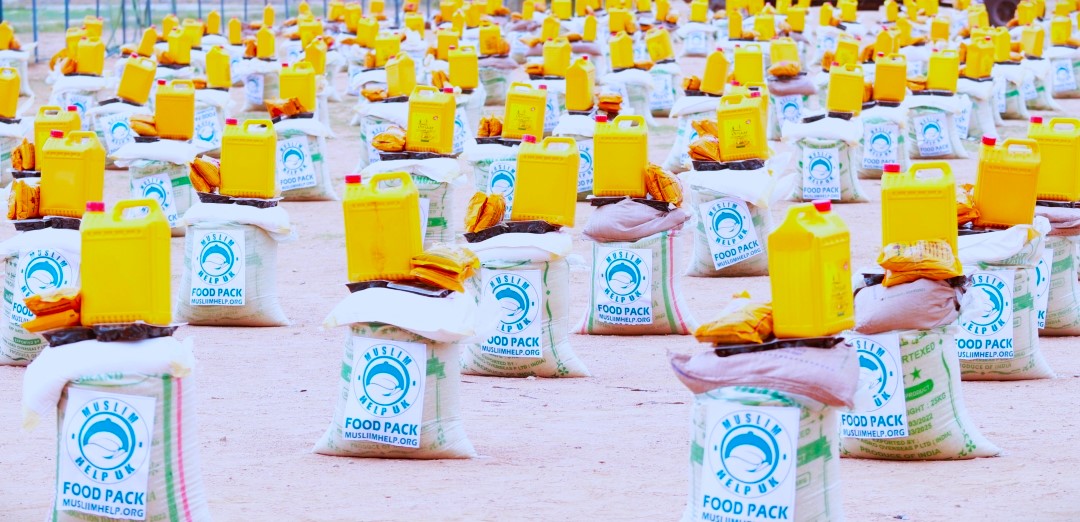Zakat
DIAMOND
GOLD
SILVER
Zakat is an obligatory payment for Muslims that must be made every lunar year if they meet the Nisab amount. This is the third pillar of Islam and translates from Arabic as ‘that which purifies’.
PAY YOUR ZAKATWHAT IS ZAKAT?
Zakat is a compulsory act of worship that requires Muslims who own wealth at or over a certain threshold (Nisab) to donate a portion of their qualifying wealth, typically 2.5%, to eligible recipients. it is a right the poor have over the rich. The Nisab set by Prophet Muhammad (peace be upon him) at a rate equivalent to 87.48 grams of Gold and 612.36 grams of silver. Linguistically, Zakat carries the meanings of purification and growth.
WHO IS ELIGIBLE FOR ZAKAT?
The Holy Qur’an (9:60) specifies eight categories for the distribution of Zaka:
- The poor
- The needy
- Zakat collectors
- Those who have converted to Islam and are in need
- Those in slavery
- Those in debt
- In the way of Allah
- The traveller
WHY WE MUST PAY ZAKAT?
Abu Hurayrah (May Allah be pleased with him), of the companions of Prophet Muhammad, reports: Allah’s Messenger (Saw) said, “Whoever is made wealthy by Allah and does not pay the Zakat of his wealth, then on the Day of Resurrection his wealth will be made like a bald-headed poisonous male snake with two black spots over the eyes. The snake will encircle his neck and bite his cheeks and say, ‘I am your wealth, I am your treasure.’ “Then the Prophet recited the verses: — ‘Let not those who withhold…’ (to the end of the verse). (3.180). (Ṣaḥīḥ al-Bukhārī)
The significance of this pillar is such that in the Quran it is mentioned 28 times in conjunction with the observation of Salat, the obligatory prayer. It is clear from Qur’an and Sunnah that if an individual possesses wealth and meets the Nisab amount, they must pay Zakat.
WHEN IS ZAKAT FARDH ON ME?
Your Zakat year starts on the date your wealth first equalled or exceeded the Nisab amount. Zakat is then payable after one full year has passed and every year thereafter on that specific date. If you cannot remember the date you first became owner of the wealth, then the date should be estimated. If this is not possible then a random date should be selected and adhered to. Paying Zakat in Ramadan is not necessary although giving charity in this month yields greater rewards.
WHY PAY ZAKAT TO MUSLIM HELP?
We understand that Zakat can only be given to certain individuals hence we make sure that the full amount of your Zakat is given to the right people and to those who are in extreme need.
ZAKATABLE PROJECT



ZAKAT IN QURAN & HADITH
Zakat is a fundamental pillar of Islam, mentioned in many verses of the Qur'an. It is a form of almsgiving or charity, which purifies wealth and helps those in need. Below are some key references to zakat in the Qur'an:
Surah Al-Baqarah (2:177)
“It is not righteousness that you turn your faces towards the East or the West, but righteousness is in one who believes in Allah, the Last Day, the Angels, the Book, and the Prophets; and who gives his wealth, in spite of love for it, to relatives, orphans, the needy, the traveler, those who ask [for help], and for freeing slaves; and who establishes prayer and gives zakat; and those who fulfill their promise when they promise, and those who are patient in poverty and hardship and during battle. Those are the ones who have been true, and it is those who are the righteous.” (2:177)
Surah Al-Baqarah (2:215)
“They ask you what they should spend. Say, 'Whatever you spend for good – it is for parents, relatives, orphans, the needy, and the traveler. And whatever you do of good – indeed, Allah is Knowing of it.'” (2:215) This verse highlights that zakat is not just a financial obligation but also an act of helping those in need.
Surah At-Tawbah (9:60)
“Zakat expenditures are only for the poor and for the needy and for those employed to collect [zakat] and for bringing hearts together [for Islam] and for freeing captives and for those in debt and for the cause of Allah and for the traveler. An obligation [imposed] by Allah. And Allah is Knowing and Wise.” (9:60)
Surah Al-Muzzammil (73:20)
“Indeed, your Lord knows that you stand [in prayer] almost two-thirds of the night or half of it or a third of it, and so do a group of those with you. And Allah measures the night and the day. He knows that you will not be able to do it and has turned to you in mercy. So recite what is easy of the Qur’an. And perform the prayer and give zakat and lend Allah a good loan. And whatever good you put forward for yourselves – you will find it with Allah, better and greater in reward.” (73:20)
The HADITH of the Prophet Muhammad (PBUH) on the Obligation of Zakat:
Narrated by Abu Huraira (RA): “Islam is built upon five [pillars]: to testify that there is no god but Allah and Muhammad is His Messenger, to establish the prayer, to give zakat, to fast in Ramadan, and to make the pilgrimage to the House (Hajj).” (Sahih al-Bukhari 8)
This Hadith emphasizes the importance of zakat as one of the core pillars of Islam, highlighting its essential role in the faith.
Zakat Purifies Wealth:
Narrated by Ibn Abbas (RA): “The Prophet Muhammad (PBUH) said: ‘Zakat is a purification for your wealth.’” (Sunan Ibn Majah 1823)
This Hadith highlights the key role of zakat in purifying wealth. It is not just a charitable act but a means to cleanse one's earnings and personal wealth.
Zakat's Role in Helping the Needy:
Narrated by Abu Huraira (RA): “Whoever gives in charity from his lawful earnings, and his zakat is accepted, Allah will forgive him.” (Sahih Muslim 1032)
Here, the Prophet (PBUH) connects zakat to forgiveness, emphasizing its significance in both the financial and spiritual realm.
Zakat on Wealth and the Consequences of Withholding It:
Narrated by Abu Huraira (RA): “The Prophet Muhammad (PBUH) said: ‘Whoever is given wealth by Allah and does not pay its zakat, on the Day of Judgment his wealth will be made into a venomous snake which will encircle his neck and bite his cheeks.’” (Sahih al-Bukhari 1403)
This Hadith serves as a stern reminder of the consequences for those who do not give zakat. It underscores the importance of fulfilling this obligation to avoid severe consequences in the Hereafter.
Zakat Helps Secure Rewards and Increases Blessings:
Narrated by Abdullah bin Umar (RA): “The Prophet Muhammad (PBUH) said: ‘The best of the acts is to give in charity, especially the zakat that you give.’” (Sunan Ibn Majah 1833)
This Hadith points to the immense rewards tied to giving zakat. It is a form of charity that not only helps those in need but also attracts blessings and reward from Allah.
Zakat Protects One from Harm:
Narrated by Abu Huraira (RA): “The Prophet Muhammad (PBUH) said: ‘Charity does not decrease wealth. No one forgives, except that Allah increases his honor, and no one humbles himself for the sake of Allah except that Allah raises his status.’” (Sahih Muslim 2588)
This Hadith shows that giving charity (including zakat) does not reduce one's wealth; rather, it brings increase in both material and spiritual aspects of life.
The Zakat is a Right of the Poor:
Narrated by Abu Dhar (RA): “The Prophet Muhammad (PBUH) said: ‘If anyone gives his zakat properly, it will cleanse him from the sins and raise his status.’” (Sahih Muslim 2339)
This Hadith reflects the idea that zakat is not merely a donation but a rightful duty to help the poor and needy, purifying both the giver’s soul and wealth.
Zakat purifies both wealth and soul. The Qur’an encourages giving zakat as a means of helping the poor, supporting community welfare, and fulfilling one's duty to Allah. It is both a spiritual and social obligation for Muslims to purify their wealth and support those in need.





